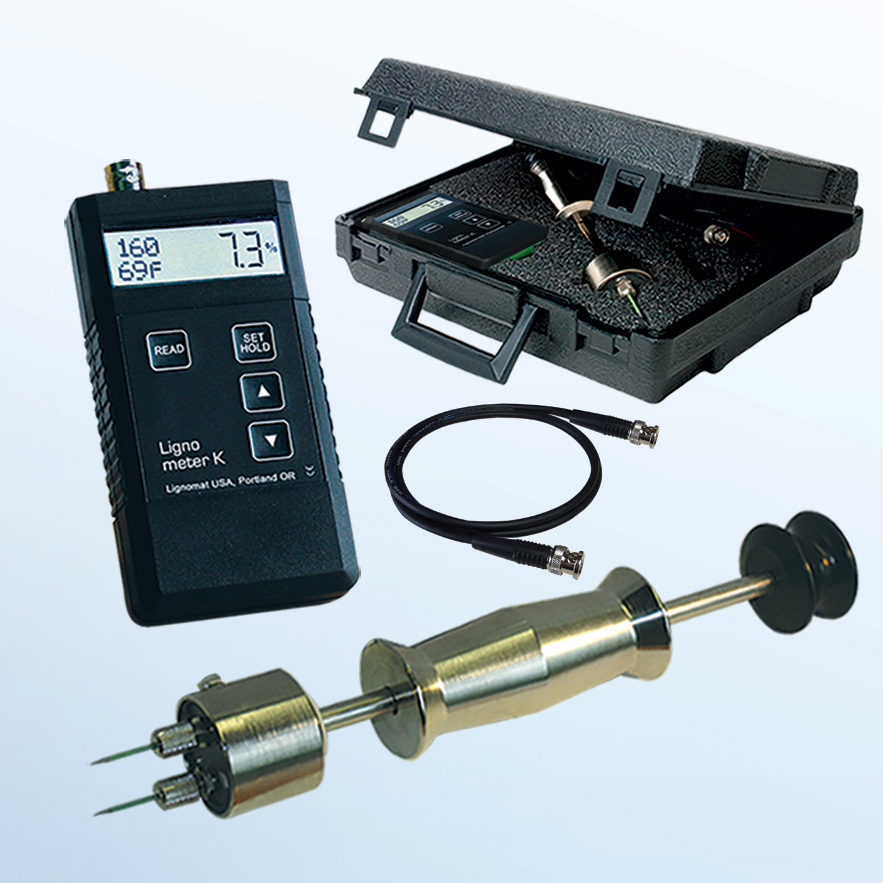How a Moisture Meter Can Improve Your Building And Construction Tasks and Prevent Damage
How a Moisture Meter Can Improve Your Building And Construction Tasks and Prevent Damage
Blog Article
The Ultimate Overview to Dampness Meters: A Comprehensive Review and Exactly How They Can Save You Cash
Wetness meters offer as crucial tools in detecting and keeping track of moisture content in products, assisting in avoiding pricey problems and guaranteeing the quality of items. Recognizing the nuances of various kinds of dampness meters, their applications, and the potential cost-saving benefits they use can be a game-changer for businesses and experts alike.
Sorts Of Moisture Meters
One usual kind is the pin-type wetness meter, which measures the electrical resistance between two pins inserted right into a product. Pinless wetness meters, on the other hand, usage electro-magnetic sensing unit plates to check a larger area without causing damage to the product's surface area.

Infrared dampness meters measure the thermal residential or commercial properties of a product to determine its wetness material non-invasively, making them helpful for applications where pin or pinless meters might not be ideal. Comprehending the various kinds of moisture meters offered can aid industries choose the most proper device for their specific wetness dimension needs.

Advantages of Utilizing Dampness Meters
Dampness meters provide invaluable advantages in precisely assessing and keeping an eye on moisture degrees in varied products and environments (Moisture Meter). One of the main advantages of making use of dampness meters is the prevention of prospective damage brought on by excess dampness. By detecting and attending to high wetness levels at an early stage, wetness meters aid to stop mold growth, rot, and structural damage in buildings, saving both money and time on repair services. In addition, dampness meters help in guaranteeing the high quality of products during building or manufacturing processes. By precisely measuring dampness content, these devices help preserve the honesty of timber, drywall, concrete, and various other products, lowering the threat of defects or failures.
In addition, utilizing moisture meters can bring about raised energy efficiency. By recognizing locations with high moisture degrees, such as leaks or poor insulation, changes can be made to enhance power preservation and lower utility prices. In agricultural settings, wetness meters play an important role in maximizing plant yields by making it possible for farmers to keep track of dirt wetness degrees and make notified irrigation choices. On the whole, the benefits of making use of wetness meters extend across different sectors, supplying cost-effective options and promoting much better quality assurance methods.
Exactly How to Choose the Right Wetness Meter
Picking the appropriate wetness meter entails considering crucial factors such as material compatibility, dimension array, and calibration accuracy. When selecting a wetness meter, it's essential to ensure that the meter appropriates for the specific material you will be testing. Different products have differing electrical properties that can affect moisture analyses, so picking a meter designed for your material is important for precise outcomes. Additionally, consider the measurement series of the wetness meter. Ensure that the meter can discover wetness levels within the variety needed for your applications. Calibration precision is an additional essential aspect to maintain in mind. Decide for a dampness meter with reliable see it here calibration to ensure precise and consistent readings. Some meters may call for routine calibration modifications, so recognizing the calibration process is very important. By meticulously reviewing these variables, you can pick a wetness meter that satisfies your needs and provides exact dampness measurements for your projects.
Appropriate Strategies for Wetness Meter Use

Cost Financial Savings Via Wetness Meter Applications
Just how can the strategic utilization of wetness meters lead to considerable expense financial savings across various sectors? In the farming market, dampness meters help in determining the optimal time for collecting plants, avoiding over-drying or excess wetness that can impact the final item's top quality.
Similarly, in building and construction, wetness meters assist protect against costly damages by identifying dampness levels in structure products, such as wood or concrete, which can result in architectural problems if not addressed immediately. By recognizing trouble locations early, service providers can take rehabilitative actions to prevent extensive repairs or substitutes, eventually conserving time and cash.
Additionally, in the food handling industry, wetness meters are vital for keeping an eye on product high quality and making sure compliance with security guidelines. By accurately measuring moisture web content in food items, producers can prevent perishing, keep quality, and decrease waste, resulting in substantial price savings. Generally, the tactical application of wetness meters is an important financial investment that can result in substantial price reductions and improved efficiency across numerous markets.
Final Thought
In verdict, try this dampness meters are important tools for determining and detecting moisture levels in numerous products. By using the ideal moisture meter and complying with correct strategies, individuals can effectively prevent pricey damages created by excess dampness.
Dampness meters offer as vital devices in identifying and keeping track of moisture web content in materials, aiding in protecting against expensive problems and making certain the quality of products. Infrared wetness meters measure the thermal residential properties of a product to establish its wetness content non-invasively, making them helpful for applications where pin or i was reading this pinless meters may not be suitable.Dampness meters offer invaluable benefits in precisely keeping an eye on and assessing moisture levels in varied products and environments. In farming settings, dampness meters play an important function in enhancing crop returns by enabling farmers to keep track of soil dampness degrees and make informed watering choices.In final thought, moisture meters are valuable tools for measuring and spotting moisture degrees in various products.
Report this page